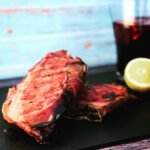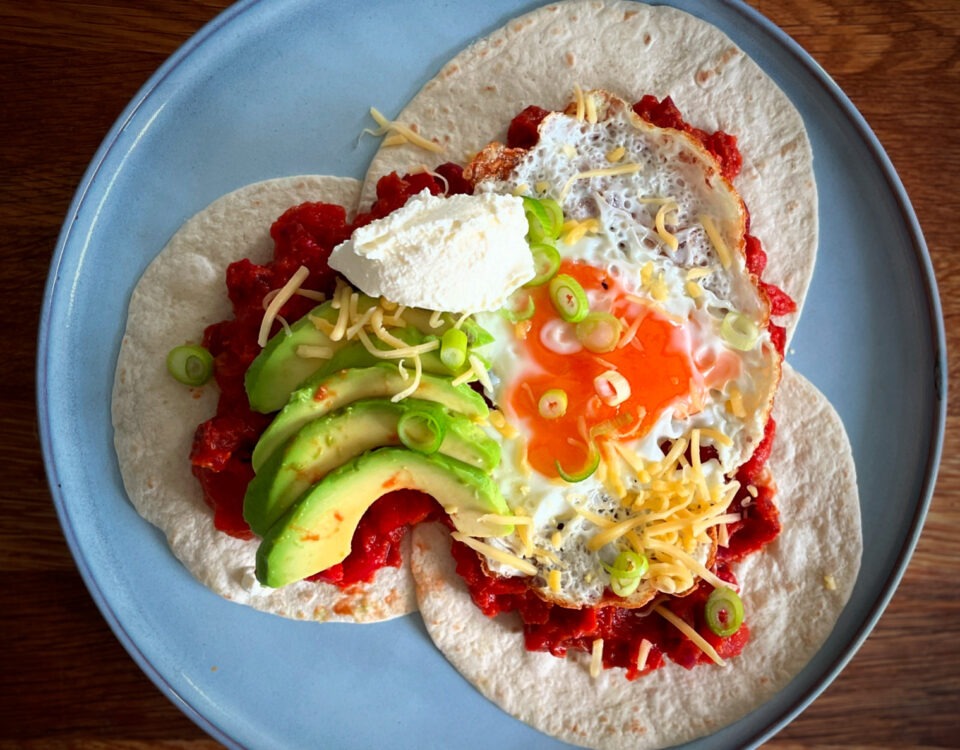
Spicy Spanish Ribs in Serranoham
April 12, 2021
Homemade Mango Chutney
August 4, 2021This year, there are quite a few ‘international’ recipes on the agenda. Besides being one that shouldn’t be missed, this particular recipe was actually requested by one of my friends on Facebook. Piri Piri actually originates from Africa but has been somewhat claimed by Portugal as one of their more distinctive recipes. And yes, you can buy Piri Piri ribs in stores or takeout, but if you’re as passionate about making spareribs as I am, then you just make these yourself. It’s truly too easy. And much tastier.
Not everyone has a vacuum sealer, and if you don’t, it’s not a disaster (although trust me, it’s a really useful addition to your kitchen). I’ve used the ribs in this recipe because it’s a wet marinade, packed with the marinade itself, vacuum-sealed, and left in the fridge. This way, the marinade gets pressed onto the meat well and penetrates it better.
Since you’re making the marinade and sauce yourself, you can control how spicy you want these Piri Piri ribs to be. I went for extra spicy, so I kept the seeds and membranes of the peppers intact… if you prefer less heat, you can remove the majority of the seeds and membranes from the peppers. If it’s still too spicy? Read on quickly.

Ingredients
2 rack of ribs
- For the marinade
2 garlic cloves (coarsely chopped)
Juice of 1 lemon
1 cup olive oil
10 to 12 red peppers (coarsely chopped)
1 teaspoon cumin powder
1/2 teaspoon fennel seeds
1/2 teaspoon anise powder
- For the sauce
Remaining marinade
2 tablespoons ginger syrup
1 can tomato paste
Directions
- Start one day in advance by removing the membrane from the ribs.
- Now, put all the ingredients for the marinade into a food processor or blender and blend them into a smooth mixture. Don’t have a blender or food processor? No problem. Finely chop the garlic and peppers, then mix all the ingredients together in a bowl.
- Set aside half of the marinade and rub the other half over the ribs. If you can vacuum-seal the ribs in a bag using a vacuum sealer, that’s great. Otherwise, cover the ribs tightly with plastic wrap and place them in the refrigerator for at least 6 hours, ideally overnight, to marinate.
- On the day of barbecuing, set up the barbecue for indirect grilling and ensure the temperature stays around 100 degrees Celsius. (If you don’t have barbecue facilities, the oven works just as well—maintain the oven temperature at 100 degrees Celsius.)
- Place the ribs on the barbecue and let them cook for at least 3 hours until they are nicely done.
- After 3 hours, perform the skewer test. If the skewer easily goes through, they’re done. If not, let them cook a bit longer and check every half hour.
- Meanwhile, make the sauce by combining the remaining marinade with the other sauce ingredients.
- Once the ribs are cooked, brush them thoroughly with the glaze and let it caramelize by placing them back on the barbecue for another half hour or in the oven.
- After half an hour, the ribs are beautifully cooked and ready to be enjoyed!



